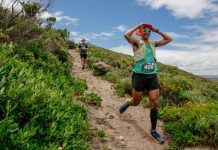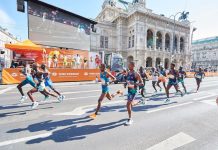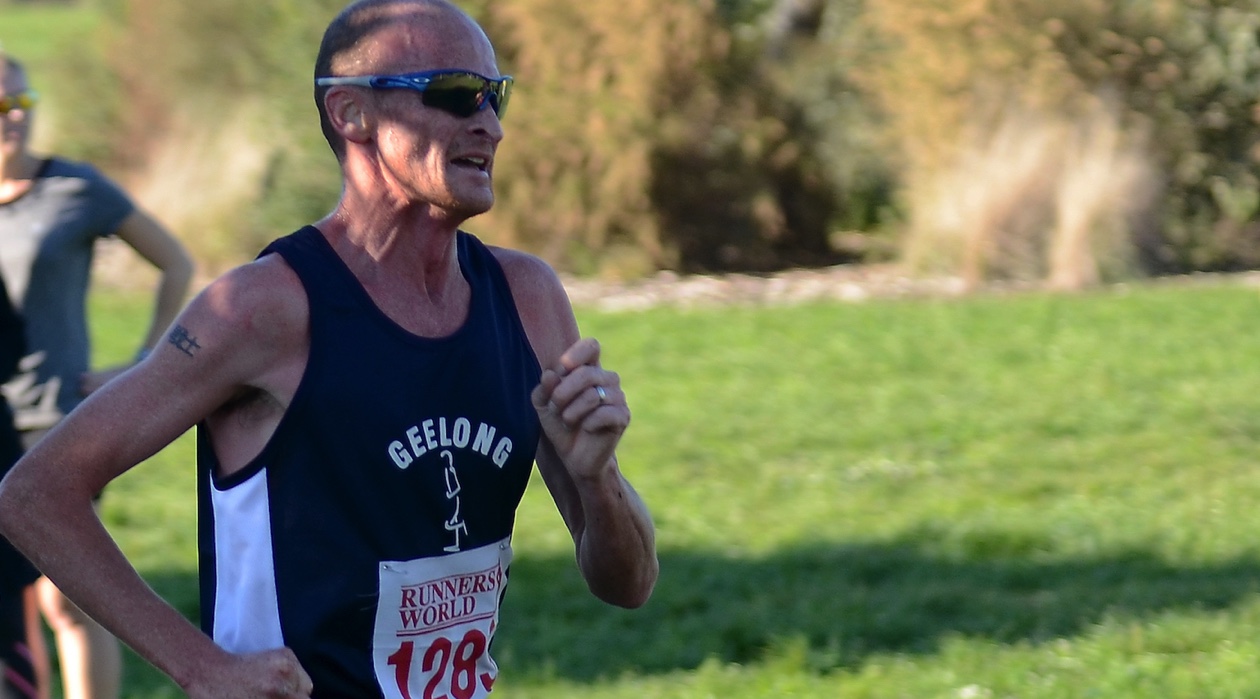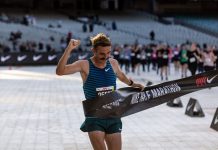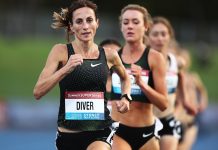SOS Locker Room Talk with Lee Troop
Lee Troop was a no nonsense athlete, and he has now taken that approach as coach of the High Performance wing of Boulder Track Club.
Troop believes in coaching the athlete first, while not investing too heavily in fleeting trends in training. Although he would fit seamlessly into the “old” school of coaching philosophy, he is by no means adverse to modern methodology. Rather, he believes that a calculated, long-term approach to consistency will unlock an athlete’s potential.
His blend of old and new is illustrated seamlessly in his approach to hydration in the marathon: SOS and flat coke (although not mixed together!)
We caught up with Lee to discuss how things have changed since his time as a professional, his approach to guiding his athletes, and how he balances it all as a business owner and family man in Boulder, Colorado.
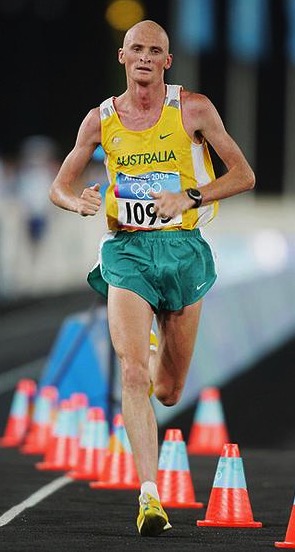
Across the board, it seems that despite huge advances in physiology and the science of running, people (at least from the West) aren’t consistently running as fast as they did back in “your day”, particularly in the marathon. What’s your take on this and how (if at all) does it affect your philosophy as a coach and a former athlete?
This is a hard one to answer and I am sure I am going to upset some with what I say, but there are certainly a number of areas that affect this.
There is no doubt that the world has become harder, particularly with the economy. People have to work more days a week or even longer hours a day. School fees are higher and students need to work a lot more to pay back debt. Housing to buy or rent is higher and the list goes on. Some athletes just can’t commit to the full- time commitment that is needed to be an athlete and they also don’t want to risk chasing a dream versus job security. Some athletes I have had start off with the attitude “we will see how it goes” which means they are testing the waters for comfort but in reality they need to sacrifice everything and go for it with no regrets. Running is unforgiving and requires you to be 100% in and anything less, you are not being true to yourself.
Some athletes are looking for easier options to help them get through training. They blur the lines of what sport scientists say and what they should really be doing, for eg: There may be a reference in a sports journal that states if you are tired, then drop a run or a session and replace it with a cross training session so that you don’t run yourself into the ground and get sick or injured. They take this literally, when in fact as a marathoner you are supposed to be tired and it’s this cumulative effect of day after day training being tired that creates the true marathon base. Now if you are totally wasted from training and are struggling to get out of bed, that is a different argument, but for some, they use this science incorrectly, which brings me to my 2nd point.
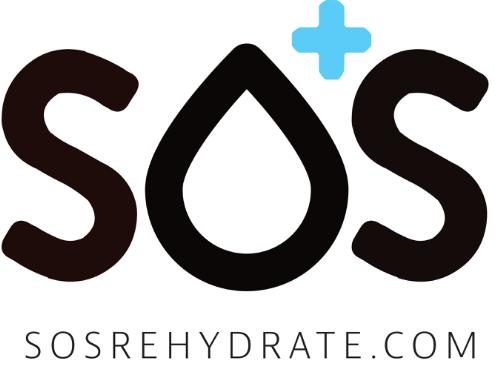
We have so much information given to us through sports science, physiologists, physiotherapists, nutritionists etc., and it is information overload. The number one factor is to train hard and use the information you have to compliment what you are doing and not have it replace what you were trying to do. Be selective in what you read or hear as everyone seems to be an expert but we are all individually wired and it is finding what works for you.
Don’t believe everything you read! I am always amazed by what I read on social media with some of the workouts that some athletes do. There seems to be a competition to see who can post the toughest, strongest or fastest workouts. 9 times out of 10, those athletes race poorly as they raced to train instead of training to race. Athletes are judged on racing but for some reason they want the world to know what killer workout they did. It’s no different than reading the best workouts that an athlete has selectively chosen to show and create an even bigger “wow” factor. Some innocently think this is how athletes train every day and every week but in fact it was just one good period/ block in their training. Realize that it’s the boring training that you haven’t seen or read, that is really the good training.
Despite our advances, nothing has really changed, yet athletes don’t want to hear this. It has to be the latest and greatest – and if you don’t have it, they will keep looking to they find someone that proclaims to have it. Some athletes are not patient or willing to sacrifice the years that it takes to be successful. Every great athlete will tell you it was 10 years of 120 – 150 miles a week. You woke up tired and went to bed very tired.
My philosophy has not changed a lot from what many other athletes were doing in the 80’s/ 90’s. I like to keep things as simple as possible and I don’t use things like heart rate monitors or GPS units and I have only slightly modified my marathoner’s fluid intake from what I used myself. For the first 5 drink stations they use SOS Hydration (which wasn’t around back in my day), but I still have them finish off their last 3 drink stations with only flat coke as I did.
Mark Rowland spoke about coaching the athlete first and the event second, what approach do you subscribe to in terms of having a diverse stable of athletes in the Boulder Track Club HP team?
I believe in this 100%. Running is an emotional sport with many highs and lows and every athlete has come from different backgrounds, with different experiences and abilities. Most leave family and friends behind in order to chase their dream and it is an unbelievable honour that the athlete chooses you to guide them and help take them to where they want to go. I only coach great people! I can only get up at the crack of dawn and go to bed in the early hours every day for those I trust and believe in. Coaching is not financial for me, if anything it costs me money but what I love is the relationship and journey I get to experience with every athlete I have. Coaching is personal and I certainly invest all I have and really see my athletes as my kids as opposed to individuals. I feel once you get everything balanced out in their life, their running follows and the process is much less complicated. I feel as an elite athlete previously, I understand athletes better than some, as I know what they are thinking, guessing, what they are risking, their anxiety etc.. I like to take that on and help them through it and they all know my door is open 24hs a day!
There isn’t really a ‘perfect’ training location, which is why many groups are consistently in different spots throughout the year chasing weather, altitude, etc. With the exception of your training camp in AZ before the Marathon Trials, your team is pretty much in Boulder for the entire year. Talk us through why Boulder is the place you want your group to be, and what would be on the wish list if you had one.
We went to Tucson AZ before the trials to escape the weather but to also have my athletes dialled in for 3 weeks solely on training and resting. Most had never been on a training camp with me and they all soon realized it wasn’t a holiday camp. We were very fortunate that the Boulder Track Club held a fundraising dinner for us to be able to do this and if we had funding every year, I would certainly take my group out of Boulder as it helps get them out of their comfort zone and have them focus solely on training in an environment with NO distractions.
I am quite envious when I see so many other places in the US set up much better for their elite athletes than Boulder. Boulder is changing and it is not the place it once used to be. In the winter we cannot get on the CU indoor track (well we can for $165 an hour) and there are no public athletic tracks, so I guess on my wish list I would love to try and change this.
We certainly do make do with what we have and I try to make sure my athletes don’t see this as a hindrance but rather another way to be creative and make the most of what we have. I know in Australia, many of us train up at Falls Creek where there isn’t an athletics track and we do our track work on an aqueduct and it certainly didn’t seem to affect my 13:14 for 5,000m that I ran in 1999!
END
Interview by Daniel Wallis: Runner’s Tribe in conjunction with SOS Rehydrate
Main Background Photo courtesy of Tim McGrath




